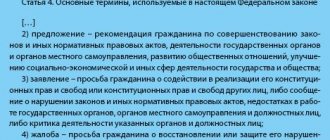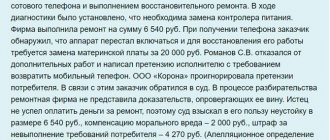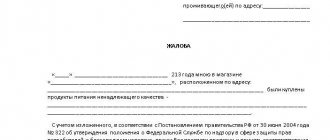Insulting a person’s personality is an active action that consists of the arbitrary or involuntary use of unacceptable statements, obscene gestures, as well as an insulting public statement, written statement or audio recording of a corresponding nature. Humiliation is considered criminal if committed in the presence of strangers, which makes it possible to classify such acts as illegal actions.
Personal humiliation may include the following types:
- Humiliation of honor and dignity is a type of insult that is considered to be humiliation of a person through rude, illegal and cynical attitude towards the victim. Such a relationship can arise at a time of personal hostility and is accompanied by criminal or administrative liability;
- Insulting national dignity is considered the grossest form of desecration of a person, which includes treating a person as a representative of a different nationality;
- Public desecration, coercion, is often practiced in public speeches and the media with the aim of creating a false impression and moral superiority over an opponent. Public humiliation of dignity contains qualifying criminal characteristics.
Legal regulation of humiliation
Insulting the person of another person is considered a crime, which is spelled out in detail under Article 130 of the Federal Criminal Code. The qualification of this crime is the expression of inappropriate statements or expressions addressed to another person. In current judicial practice, this article has lost its relevance, therefore, at the time of the proceedings, the standards of the corresponding article of the administrative code are applied.
Serious liability for desecration and humiliation is applied only in cases where the victims of this crime are military personnel or officials who are in the performance of their professional duties.
Degradation at work
When carrying out labor activities, citizens may also be subjected to humiliation and discrimination on the grounds of race, social status, nationality, religious and other beliefs.
At the same time, it is possible to accuse a person who committed the above acts only if a significant group of people was humiliated and this was done publicly, including through the media.
Otherwise, an act that degrades a person’s dignity will be considered under Article 130 of the Criminal Code of the Russian Federation.
How to punish and where to go if your honor is humiliated?
In order to punish an unscrupulous citizen for insult and bring him to justice, it is necessary to clarify what the concept of desecration includes. As part of the crime, there is always a culprit who, verbally or in writing in the presence of other citizens, uses obscene language and humiliates the person of the victim. Based on the presence of such a crime, the victim can seek help from the following institutions:
- Police;
- Prosecutor's Office;
- Judicial institutions.
The specific choice of authority for appeal may depend on the following factors: the nature of the relationship between the conflicting parties, the stage of the proceedings, the fact of the availability of evidence against the offender.
Humiliation of a child's human dignity
Forming a child’s self-esteem is the most important part of upbringing . The sense of self-esteem formed in childhood will have a key influence on what lifestyle the child will choose and maintain in the future.
One of the significant factors influencing the development of self-esteem in a child is the respectful treatment of the people around him. And not only within the family, but also in educational institutions.
The punishment for insulting a child is determined by the court, guided by the composition and provisions of Article 5.61 of the Code of Administrative Offenses of the Russian Federation. Criminal liability is possible if consequences occur that lead to loss of health or life of the injured party.
Regarding Art. 282, then its use is possible with the same signs accompanying the act that are indicated above in the article, namely:
- humiliation of a significant group of people, including children;
- publicity, openness;
- discrimination based on nationality, race, social status, gender or belief.
Statement in a moment of humiliation
A statement for humiliation must be drawn up directly upon the commission of an unlawful act involving desecration of a person, that is, no later than ten days after the commission of the crime. To correctly draw up a document, you must use a sample provided by the police. At the time of submitting the paper, you must provide a passport and information about the person of the criminal.
The local police officer must accept the application, which will be drawn up on a standard form or in a free form. The most important steps in the document drafting process should be to detail the criminal events and the adverse consequences that resulted from the desecration. The accepted application will be put into production to establish all the real circumstances of the crime.
At the time of submitting the document to law enforcement agencies, the injured party must provide maximum true evidence, which recognizes the explanations of eyewitnesses and witnesses, audio and video recordings of evidence, and physical material evidence. If legal proceedings were organized regarding the circumstances of the desecration, the victims may demand compensation for moral damage.
Humiliation of human dignity: Art. 282 of the Criminal Code of the Russian Federation
It should be noted that Article 282 of the Criminal Code of the Russian Federation considers crimes aimed at inciting hatred or enmity, or humiliating human dignity.
And here it is worth distinguishing between everyday humiliation of a person through insult (Article 130 of the Criminal Code of the Russian Federation) from humiliation of a person on national, racial, social, religious grounds, which is committed publicly or through the media.
The object of the crime under Art. 282 are public relations in the field of ensuring constitutional foundations that guarantee the provision of national, religious and racial interests. An additional object is the honor and dignity of citizens.
The objective side of the crime under Art. 282 is characterized by:
- actions that incite hostility and hatred;
- actions that directly humiliate human dignity;
- propaganda of superiority or inferiority of citizens by nationality, race, religious and other beliefs.
These actions are characterized by the public dissemination of inhumane ideas, views, and opinions that provoke a state of hostility.
Such actions are of a general nature and apply to a large number of people (for example, calls for deportation, reprisals, obstruction of religious or national rituals, and the use of discriminatory measures).
Actions that humiliate a person’s dignity are expressed in discredit, a negative attitude towards a certain nation, expressed in an indecent form. Such actions are expressed in humiliation, insult, demonstration of inferiority, limitations, and inferiority of a citizen.
A mandatory feature common to both types of crimes is the publicity of the actions performed.
This means that views and ideas that give rise to national, religious, social, and racial hatred are disseminated openly, in the presence of a wide range of people (for example, at a meeting, rally).
The use of media involves the dissemination of such ideas through radio, television, newspapers, etc.
The crime is considered completed at the moment the specified actions are performed, regardless of the presence/absence of consequences, i.e. has a formal composition.
Persons over 16 years of age can become the subject of a crime.
The subjective side is characterized by the presence of direct intent. Motives and goals can be very different and do not affect qualifications. Most often the motive is racial, nationalistic or religious.
Part 2 of the article we are considering as qualifying criteria provides for the same acts committed:
- with threat of violence;
- using official powers;
- group of persons.
Responsibility and punishment for humiliation of honor
The issues of punishing criminals for insulting a person are regulated by the relevant article of the Criminal Code of the Russian Federation and the Code of Administrative Offenses. If the act is committed by a commander towards military personnel or by managers in the workplace towards subordinates, in such cases stricter administrative punishment is provided. Humiliation of the honor and dignity of another person, which is expressed in an obscene form, entails the following types of punishments:
- If the criminal is a private person, then he is obliged to pay a fine in the amount of one to three thousand rubles;
- Officials pay a fine ranging from ten to thirty thousand rubles;
- Legal entities must pay an administrative fine in the amount of fifty to one hundred thousand rubles.
Desecration, which was expressed at the time of a public speech and at the public level showed an unworthy attitude towards an individual, entails a certain administrative penalty. The amount of the fine may vary depending on the legal status of the criminal: private citizens pay from three to five thousand rubles, persons in office must pay a fine in the amount of thirty to fifty thousand rubles, legal entities are required to pay from one hundred to five hundred thousand rubles.
Inaction and failure to take specific measures to prevent humiliation in public speeches and the media may also be punishable by administrative fines. In this case, officials must pay from ten to thirty thousand rubles, and legal entities are required to pay a fine in the amount of thirty to fifty thousand rubles.
Author of the article
Dmitry Leonov
Work experience 15 years, specialization - housing, family, inheritance, land, criminal cases.
Author's rating
721
Articles written
712
about the author
Useful information on criminal cases
- Humiliation of honor and dignity Criminal prosecution for libel
- Article for libel on the Internet
- False report of rape
- Defense against libel
- Charge of libel
- Theft accusation without evidence
- Sue for personal insult
- Personal insult complaint
- Fine for libel
- Liability for slander of an official
- Violent actions - Article 132 of the Criminal Code of the Russian Federation
- If the boss yells and humiliates: where to complain?
- Insulting a minor child: article
- Neighbor threatens violence: what to do
- Responsibility for violation of confidentiality of correspondence
- Libel lawsuit
- Punishment for public insult to a person
- Does a teacher have the right to insult a student?
- Infringement of the rights of minor children
- Attempted rape
- Blackmail on the Internet - Article 163 of the Criminal Code of the Russian Federation
- Rape charge
- Responsibility for non-payment of wages
- Criminal liability for violation of privacy
- What to do if you receive threats over the phone
- Punishment for knowingly false testimony
- Sample statement about threat to life
- Insulting a police officer while on duty
- Resisting a police officer - article
- Negligence of doctors article of the Criminal Code of the Russian Federation
- Illegal restriction of freedom of movement
- Damage to common property in an apartment building
- My wallet was stolen, what should I do?
- Criminal liability for vandalism
- What to do if your husband beat you?
- How much do they pay for killing a person?
- Bank fraud
- Possession of narcotic drugs
- Copyright Law
- Punishment for a bribe
What is humiliation of human dignity?
Human dignity is the spiritual core of personality. A person who has such a core will not commit immoral acts.
He defends the interests of goodness, truth, justice, is proud of the spiritual culture and traditions of his people, and does not allow himself to be manipulated.
Human dignity cannot be considered outside of society. National, religious, social, individual and personal differentiation of society has a direct impact on the feelings, consciousness, and level of human dignity.
National and religious strife push some people to recognize the dignity only of those who belong to their race, nationality, religious or other beliefs. They consider the rest of the citizens to be wretched, while their rights and freedoms are infringed, their dignity is insulted and humiliated.
The extreme expression of absolutism of nationalist dignity is considered to be fascism, which does not recognize any persons other than the chosen few.
The formation of dignity is complicated by multiple contradictions of a national, class, and religious nature, making it flawed, truncated, and deformed.
The word “honor” is close to the concept of “dignity” . Both of these concepts imply self-respect, spiritual and moral independence and express the spiritual principle that constitutes the moral basis of human dignity.
But if honor is an attitude towards a person’s personality in society, his reputation, then dignity is a person’s attitude towards himself, his principles, internal beliefs, ideology.
Constitutional law prohibits humiliation of the honor and dignity of an individual.
Humiliation is human behavior aimed at suppressing and violating the sense of dignity both in the person himself and in the eyes of others.
You can humiliate a person unconsciously or intentionally, for the purpose of self-affirmation or in the course of education. It is important to note that humiliation can cause psychological trauma and serious nervous disorders.
Responsibilities of a judge
What should the judge find out during the proceedings? First of all this:
- the presence of an administrative offense event;
- determine the person who committed unlawful actions (inaction), for which administrative liability is provided for by this Code or the law of a constituent entity of the Russian Federation;
- guilt of a person in committing an administrative offense;
- circumstances mitigating administrative responsibility and circumstances aggravating administrative responsibility;
- the nature and extent of damage caused by the administrative offense;
- circumstances excluding proceedings in a case of an administrative offense;
- other circumstances relevant for the correct resolution of the case, as well as the reasons and conditions for committing an administrative offense.
What evidence proves all this?
Any factual data on the basis of which the judge determines:
- the presence or absence of an administrative offense event,
- the guilt of the person brought to administrative responsibility,
- other circumstances relevant for the correct resolution of the case.
These data are established by the protocol on an administrative offense and other protocols provided for by the Code of Administrative Offenses of the Russian Federation, explanations of the person against whom proceedings are being conducted for an administrative offense, testimony of the victim, witnesses, expert opinions, other documents, as well as testimony of special technical means (audio recording on the phone ), physical evidence.
How to protect yourself from insults?
How in practice are these rights protected and a person brought to administrative responsibility?
- The first thing to do is to write down the details of the people who heard the insult, know about the circumstances of the incident, and were eyewitnesses of the conflict.
- The second is to write a statement to the prosecutor's office of the district where the insult occurred, since it is the prosecutor (deputy) who is authorized to make decisions on cases of this category.
In accordance with the requirements of Art. 28.4 of the Code of Administrative Offenses of the Russian Federation, the prosecutor, if there are grounds, is obliged to initiate a case of an administrative offense.
To do this, he issues decisions that indicate:
- date and place of drawing up the resolution,
- position, surname and initials of the person who compiled the protocol,
- information about the person against whom a case of administrative offense has been initiated,
- surnames, first names, patronymics, residential addresses of witnesses and victims, if there are witnesses and victims,
- place, time of commission and event of the administrative offense,
- an article of the Code of Administrative Offenses of the Russian Federation or the law of a constituent entity of the Russian Federation, providing for administrative liability for this offense,
- explanation of the individual or legal representative of the legal entity against whom the case has been initiated,
- other information necessary to resolve the case.
Conditions for recognizing insult as an offense
Insult can be carried out by physical actions, expressed verbally and in writing, including demonstrating obscene gestures, sending obscene letters, cursing a person.
The actions of a person are considered an offense under the following conditions:
- The person's assessment was given in an obscene manner. It does not matter whether the information spoken, written or otherwise expressed is true;
- The insult is perceived by the addressee. The actions of the guilty person are directed against a specific person and there is no doubt about this.
When determining the measure of responsibility, the social status of the person whose honor and dignity was humiliated does not matter.
Arbitrage practice
In practice, such claims are rare, but it is possible that this will soon become commonplace.
In the Yaroslavl region, bailiffs are preparing to conduct enforcement proceedings in a similar case. One woman described her work colleague as a seducer of all the men in the organization where they worked. She then posted the incriminating recording on social media for everyone to see. The offended woman responded by filing a lawsuit, where the offender was ordered to pay a fine of 50 thousand rubles for insulting her on the Internet.
It remains to be expected that soon control of norms of behavior will be at a high level, and judicial practice for insults on the Internet will become more frequent.
| Pass during quarantine | Payment and registration of sick leave during quarantine |
| Article 6.3 of the Code of Administrative Offenses | Article for violating the self-isolation regime |
- Didn't find the answer to your question? Find out how to solve exactly your problem - call right now:
- Federal number -
- Moscow region, Moscow -
- Leningr. region, St. Petersburg -
- It's absolutely free and fast!









